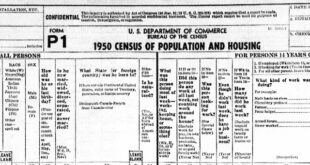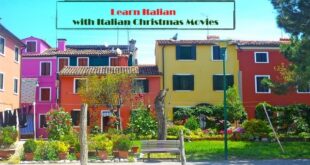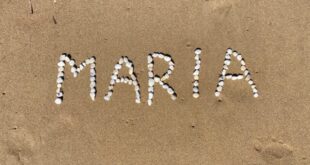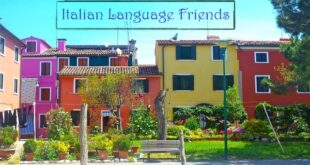 It’s been too long since I’ve extolled the virtues of Family History Center and given the low attendance at many of them these days, maybe it’s time to do so.
It’s been too long since I’ve extolled the virtues of Family History Center and given the low attendance at many of them these days, maybe it’s time to do so.
Family History Centers are open to anyone, no matter what level they may be in their research. They are affiliated with the Church of Jesus Christ of Latter Day Saints (commonly known as Mormons), and most of them are located in church buildings owned by them. Please be assured, however, that you do not need to be a member of their church to use the Family History Center. Please also be assured that at no point will anyone from the church attempt to convert you or even discuss their church with you. I’ve been using their centers for two decades, and been through dozens of volunteers and missionaries who have worked there, and none of them have ever tried to bother me, or anyone else that I know of, about their religion. This is a strict policy of theirs because they know they will scare away regular folks who just want to do genealogy work.
So what can be found at any Family History Center? They all have cable internet access, and they have several web sites that are available for free to any patron. Each Family History Center has a limited edition of Ancestry.com (general genealogy records and family trees) and Fold3 (military records). They also have 19th century British Newspapers, NewspaperArchive.com, Swedish church records, Heritage Quest and a number of others.
All Family History Centers have access to the Mormon’s free genealogy site, familysearch.org. You can get to familysearch from home, but some images of certain records are only available for use while at a Family History Center. It depends on the licensing agreement that was made with the owner of the records. Familysearch has been mentioned in many of my columns. It contains access to any microfilms that have been digitized and possibly indexed, such as Chicago and Cook County birth, marriage and death certificates. Due to restrictions by Cook County, the images of those certificates are not available on the site, even at Family History Centers, but you can use the index to look up family members and find the date of birth/marriage/death, the microfilm number and the certificate number. More on this later.
If you need to find Italian records, you still need to order microfilm from Salt Lake City and have it sent to your local Family History Center. In the past, you just walked in, filled out a form, paid about $6-$7 and the film would arrive several weeks later. Today is very different. All films must be ordered via familysearch.org. You need to set up an account with them, and choose a “home” center. Then you can search for films in the catalog. If the film is already available on-line, it will give you a link to that data. If not, you can pick out the film and add it to your cart, just like any other internet purchase. The films will be shipped to your home center in a few weeks.
Each Family History Center has a collection of “indefinite loan” films. These are microfilms that were sponsored so they could be kept more or less permanently at the center. Each center has a different collection of these depending on the director and the patrons who sponsored their films. For example, the Buffalo Grove center has most films for Triggiano, Bari, only because a certain patron (yours truly) sponsored those films. Other centers do not have these same films on indefinite loan. You have to check the catalog of each center to see what they have that could help you. The Wilmette center, one of the oldest in the area, has a huge collection of such films, including most Chicago birth certificates (1878-1922), marriage licenses (1871-1920) and death certificates (1871-1947). So even tough these are not available on-line, you can look up the certificate numbers and film numbers on familysearch.org and then go to the Wilmette center and find the certificates on the films, without having to pay for the films! Pretty neat, huh?
So you have computers and microfilm readers at Family History Centers. What else is there? Probably the most important resource they have is volunteer assistance. The centers are usually open a very limited number of hours per week because they are staffed by volunteers. However, there is always someone there who can help you with your research. They will not do research for you (many people think that they do but they don’t). They will help guide you to resources you might not know about. The key is to find out who is the best volunteer at your local center and go there when that person is scheduled to work. Everyone has different strengths and weaknesses. But if you ask the staff at a Family History Center who is their resident expert at Italian research, or at Chicago research, or Hungarian or Guatemalan, they can usually tell you right away. If not, they can call the center director who usually knows who is the resident expert. Sometimes, all you need is a sounding board.
So where do we find these Family History Centers? Rather than type them all, you can find all centers in Illinois at this page: https://familysearch.org/learn/wiki/en/Category:Illinois_Family_History_Centers
No matter what web site you find that lists Family History Center hours, it is always best to call ahead and be sure they haven’t changed. Due to the nature of volunteers, the hours change too frequently at some centers and you might arrive and find the doors locked. Typically, too, if the weather is bad enough to close local schools, the center will probably be closed too. In general, if the weather is bad, please call the center first to make sure the volunteers made it. Centers are also closed for typical holidays, and for non-typical “conference” days. In April and October, the Mormon Church has their general conference and closes the centers so they can let their members listen to the message from Salt Lake City. Each center usually has a posted schedule, so you can check which days they are closed ahead of time.
I highly recommend that you figure out what your toughest genealogy question is, gather your papers and photos and charts, and bring them to a Family History Center and see if they can help you take that next step.
Write to Dan at italianroots@comcast.net and please put “Fra Noi” in the subject line.
 Fra Noi Embrace Your Inner Italian
Fra Noi Embrace Your Inner Italian





